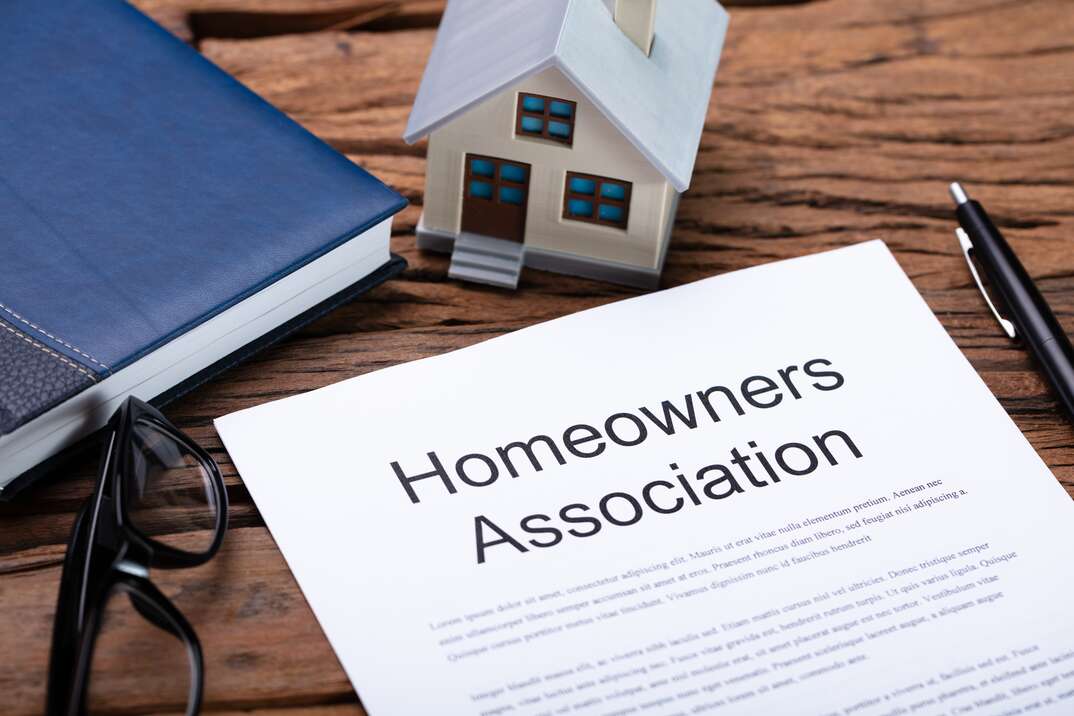- AppliancesElectriciansHVACLandscapingLocksmithPest ControlPlumbingRenovationRoofingT V RepairAll Home Improvement
- Car AccidentClass ActionCorporate LawCriminal DefenseDivorce LawEmployment LawFamily LawFinancial LawLegal AidMedical Injury LawyersMedical MalpracticeReal Estate LawWater Fire RestorationAll Legal
- InvestmentRetirementAll Finance
- Animal InsuranceAutoGeneral InsuranceHealth PolicyHome RentersAll Insurance
- DentalHealth SpecialistsAll Medical
- Animal CareVeterinaryAll Pets
- Auto GlassTowingAll Automotive
8 Most Common HOA Regulations to Be Aware Of

Homeowners associations often get a bad rap. Everyone's heard horror stories of HOA presidents abusing their power over fellow homeowners.
Read More Home Improvement Articles
However, HOA rules and regulations can have benefits. They help keep the neighborhood looking nice, which can help keep your home value higher.
HOA restrictions often apply to the exterior of your home. The idea is to keep a certain standard in the neighborhood or a consistent look from house to house. Some of the HOA regulations you can expect include rules about:
1. Landscaping Requirements and Restrictions
Your landscaping has a lot to do with curb appeal. Since HOAs want neighborhoods to look nice, they often create rules about what you can and can't do. Some HOA restrictions about landscaping focus mainly on keeping your lawn mowed and weeds under control. More restrictive neighborhoods might regulate the types of things you can plant, where you can place them, colors you can use, size of plants, number of plants and restrictions on hardscaping.
Another common focus of HOA restrictions is the architecture of homes. Before you make a design change, make sure it's not an HOA violation. You might need approval before you change the color of your home or add structures, such as decks, patios or solar panels. If you're considering a home renovation that will change the look of your home's exterior in any way, run it by the HOA first.
3. Home Maintenance
You could commit an HOA violation if you don't handle home maintenance properly. This typically applies to the exterior and could include issues such as peeling paint or damaged roofing. If you live in a condo building, the association typically handles exterior maintenance. But if you own a single-family home in an HOA neighborhood, you'll likely handle the exterior maintenance. Understand your obligations to avoid a violation.
4. Pets and Livestock
Your homeowners association rules might include restrictions on the animal occupants of your property. While pets are usually allowed, your HOA might restrict pet sizes, the number of pets allowed or pet breeds. It's common to have leash laws and require residents to clean up after their pets. Don't be surprised if your HOA says no to your request for a backyard chicken coop or a mini livestock herd.
More Related Articles:
- How Much Does a Home Inspection Cost?
- 4 Tips for Hiring a General Contractor for Your Next Remodeling Project
- Should You Hire a Contractor or a Handyman?
- 5 Things to Look For When You're Hiring an Electrician
- What to Look for When Hiring an Exterminator
5. Seasonal Decorations
HOA rules pertaining to seasonal decorations might restrict the type of decorations you can display and how long you can leave them out. Check the rules to find out how and when you can start decorating for the holidays and when you need to take them down. Look for restrictions on the size and type of decorations. Some neighborhoods might prohibit noisy or distracting decorations. They might also require decorations to be anchored.
6. Parking Rules
Think you can park any type of vehicle anywhere on your property? Your HOA might not agree. You might not be able to keep a work vehicle, RV, boat or other types of vehicles on your property. The HOA can also restrict where you can park.
7. Noise Restrictions
HOA rules about noise can benefit you, especially if you like to go to bed early. Your HOA might set noise limits based on decibels to avoid loud parties, machinery and other disruptive sounds. The noise restrictions might go into effect at a certain time at night, or the nighttime decibel limit might be lower than the daytime limit.
8. Renting Out Your Home
Thinking about making some cash by renting out your home? The HOA rules and regulations in your neighborhood could squash that side hustle option. Some HOAs don't allow you to rent out your home. This isn't always about the HOA being picky or controlling who lives there. Community insurance policies sometimes require a certain number of owner-occupied units.
Following HOA Rules and Regulations
When buying a home, find out if it has an HOA — not all neighborhoods do. Read the HOA rule documentation before buying to make sure it fits your lifestyle and preferences. Some areas are stricter than others when it comes to HOA violation enforcement, so talking to some of the neighbors can help you gauge the situation.
If you already own a home in an HOA neighborhood, brush up on the HOA restrictions and consequences for violations. It's always a good idea to check with your HOA before you make any changes to your home, especially on the exterior. Your HOA might be willing to make exceptions if you talk to them before you do the work. If you do the work and find out later you violated an HOA rule, you'll likely have to fix the issue, which increases your costs.
Elocal Editorial Content is for educational and entertainment purposes only. Editorial Content should not be used as a substitute for advice from a licensed professional in your state reviewing your issue. Systems, equipment, issues and circumstances vary. Follow the manufacturer's safety precautions. The opinions, beliefs and viewpoints expressed by the eLocal Editorial Team and other third-party content providers do not necessarily reflect the opinions, beliefs and viewpoints of eLocal or its affiliate companies. Use of the Blog is subject to the
Website Terms and Conditions.The eLocal Editorial Team operates independently of eLocal USA's marketing and sales decisions.



